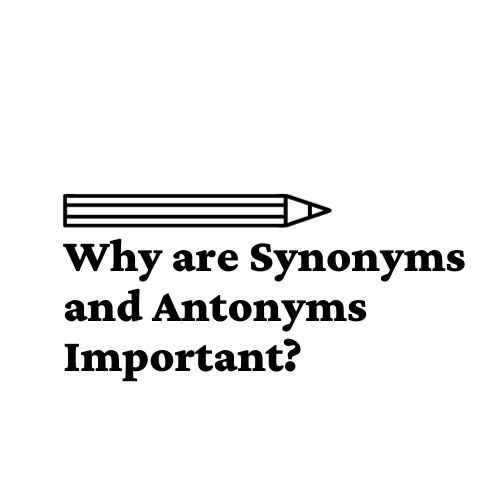When people first begin to learn a language, they often get frustrated with the introduction of several terms that can be substituted for the same word. As you become more fluent, however, you realize that the slight difference in meaning between these words can make all the difference in the world in your sentences. If you want to use more nuance or be more precise in your language choices, you need synonyms and antonyms. Here are some reasons why understanding these concepts is important.
Definition of Synonyms and Antonyms
Synonyms and antonyms are basic concepts of the English language. They play an important part in improving a person’s vocabulary, writing, and comprehension.
Synonym is a word that has the same or nearly similar meaning as another word. An example we can use is the words “big” and “huge.” These are different words that have the same meaning.
Using synonyms can help avoid repeating the same words in each sentence. This prevents monotone phrases and makes the sentences more engaging.
On the other hand, an antonym is a word that has the opposite meaning of another word. An example of an antonym is the words “big” and “small” since they have opposite meanings.
Just like synonyms, antonyms help improves vocabulary and comprehension. These words allow the writer or speaker to be more descriptive and precise with their words.
To Build Your Vocabulary
Studying synonyms and antonyms can improve your vocabulary. Finding words with similar meanings that you can use in place of a word you use often can give you more ways to say the same thing. Understanding the opposite of a word – or exactly what the term does not represent – can lead to a more acute understanding of the word itself.
Exploring synonyms and antonyms can also help you learn the multiple meanings of a word. If you compare a person who dresses well as opposed to a person who does not, for example, you may call the former person a smart dresser. In order to describe the second person’s fashion sense, you first need to understand what you mean by smart. If you substitute the opposite of intelligent and call the latter person a foolish dresser, that doesn’t make much sense (or at least not the kind of sense you probably intend). By terming the opposite of smart as unfashionable or old-fashioned, the contrast helps the meaning of both terms become clearer.
To Make Reading More Enjoyable
As your understanding of a language grows, so does your reading comprehension. Authors capitalize on the contrast of opposites and the nuance of slightly different terms to make their writing more precise. Poets, in particular, seem to search for just the right word to make their verses say exactly what they want to get across. A poet could refer to a space as large, but it is much more vivid to call it cavernous. As the reader, you may now be more inclined to imagine a grand, possibly intimidating area. You can almost hear the words surrounding it echo in the void. When the author chooses just the right synonym, it can make that big of a difference in your experience as a reader.
To Make Your Writing Come Alive
When you are the writer, you can use the same devices to engage your own readers. Why say the water is darkwhen you can call it murky? Instead of describing a delicious course of your meal as rich, you can call it succulent. Using synonyms and antonyms saves you from having to say the same exact word over and over again and thus enriches your writing. When you are writing, keep a thesaurus on hand. That way, if you get stuck on a word, you have a tool that can help you find a suitable alternative.
There is almost always more than one way to get an idea across. When you look for synonyms and antonyms, your vocabulary, comprehension, and writing become better.
To Make Writing More Understandable
As a writer, you have to make sure your writing can be understood by your readers. Depending on your audience, you should use words they can understand.
For example, not everyone knows the word “exhilarating”; the word “exciting” is much easier to understand. In such cases, you can use simple or complex words depending on your target audience.
If your readers are professionals and experts, using complex words is fine. But if you want to keep a wider range of audience, using simple words can help make your writing more engaging.
Final Thoughts
Synonyms and antonyms serve an essential role in the English language. They help improve vocabulary and make writing more engaging and easier to understand.
Readers and writers can benefit from using synonyms and antonyms to improve their English language skills. If you want to be a better writer, having a solid understanding of synonyms and antonyms can help you get the job done.
